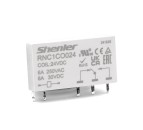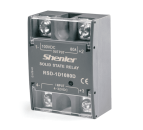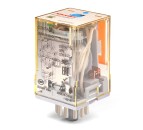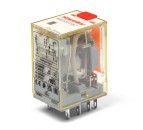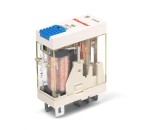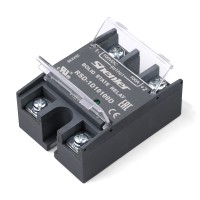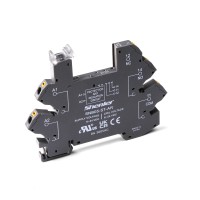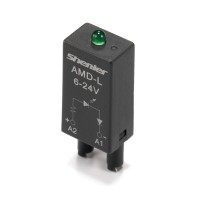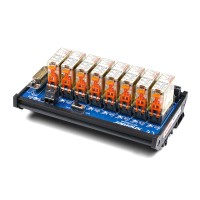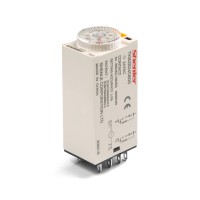Timer
Shenle timer relays deliver reliable and precise timing control solutions for building and factory automation systems. Engineered to streamline operations, our products combine advanced technology with robust design to meet diverse industrial demands.
● Available in multiple mounting options, voltage configurations (24-230V AC/DC), and timing ranges (0.1s–30min) to adapt to varied applications.
● Equipped with a dedicated timing IC chip for ±2% accuracy, ensuring consistent performance while reducing wiring complexity and system downtime.
● Built with industrial-grade components and tested under rigorous CE standards, guaranteeing durability, low failure rates, and compliance with environmental regulations.
● User-Centric Design: Simplified installation and maintenance, supported by modular construction and intuitive operation interfaces.
Every Shenler timer relay reflects our dedication to innovation, quality manufacturing, and sustainable practices. Trusted globally, our products empower smarter automation with unmatched precision and longevity.

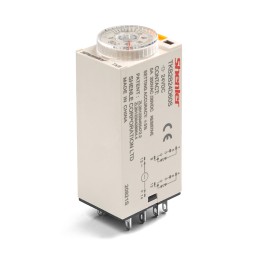
TKB timing relay is a miniature timing relay controlled by built-in special IC program.


Download Shenler Timer Catalog PDF
DownloadFunctions of Timer Relays
Timing relays are relays with a timing function that allows them to control the on/off cycle of a load according to a predetermined period of time.
The following are some common functions of timing relays:
Delayed On: Timing relays with delayed on function will activate the load after a set delay time once the relay is energized.
Delayed shutdown: The timing relay with delayed shutdown function, once the relay is powered off, the load will be turned off after the set delay time.
Interval: Interval time relays will alternate the load between on and off cycles, with each cycle lasting a predetermined period of time.
One-shot: One-shot timer relays will activate the load within a predetermined period of time after the relay is energized, regardless of how long the input signal has been applied.
Cycle: A cycle timer relay will activate the load for a predetermined on time period, then turn off the load for a predetermined off time period, then repeat the cycle.

Benefits and Drawbacks of Time Delay Relay
There are both advantages and disadvantages to using a time delay relay. Some benefits include the ability to customize delay times, the ability to control large electrical loads, and the ability to provide safety in hazardous situations. Some disadvantages include the need for regular maintenance and the possibility of failure.
Benefits of Time Delay Relays
Precision Timing Control: TDRs provide precise timing control that can be tuned to meet specific application requirements.
Flexibility: TDRs can be used in a wide range of applications requiring sequential control, such as motor control, lighting control, and process control.
Increased Efficiency: By controlling the timing of electrical devices, TDRs can increase system efficiency, resulting in lower energy consumption and cost savings.
Reduced wear and tear: TDRs help reduce wear and tear on equipment because they prevent equipment from running continuously or for longer than necessary.
Safety: TDRs can be used to provide safety functions, such as preventing equipment from starting or stopping unexpectedly, or preventing motors from restarting after a power loss.
Disadvantages of time delay relay
Complexity: TDRs can be more complex to install and set up than simple on/off relays because they require adjustments to the timing mechanism.
Cost: TDRs can be more expensive than simple on/off relays, especially if they have advanced features or precise timing requirements.
Limited Applications: TDR may not be suitable for all applications, as some devices may need to operate continuously or outside of specified timing windows.
Maintenance: TDRs require regular maintenance to ensure that they function properly and that the timekeeping mechanism is accurate.
Collectively, TDRs can provide precise timing control, thereby improving the efficiency, safety, and lifetime of electronic equipment. However, they may not be suitable for all applications and may require more maintenance and setup than a simple on/off relay.
